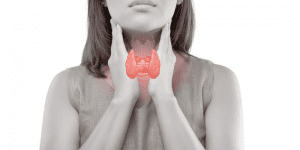Menopause typically begins at the age of 51 for most women. However, some women may experience it before they have even reached 40 years old. Whether it’s due to hormonal shifts, premature ovarian failure, or more complex issues such as chemotherapy treatments, pelvic radiation or ovarian damage, if estrogen production is disrupted, early menopause may be a result.
During menopause, a woman’s ovaries cease generating eggs, leading to decreased estrogen levels, a hormone that regulates fertility. After one year without periods, a woman is considered as being in menopause. Perimenopause symptoms, such as hot flashes and mood swings, begin well before menopause throughout this time.
Causes of Early Menopause
Here are some of the reasons why you may experience menopause early:
Seizures are a symptom of epilepsy, which originates in the brain. Primary ovarian deficiency, which causes menopause, is more common in people with epilepsy. Menopause’s fluctuating hormone levels may impact epileptic women’s seizures.
For early menopause, genetics is the most probable explanation. Your age of menopause onset is most likely a result of genetics. Understanding when your parents go through menopause might give you an idea of when you will go through it. Chances are high you experience the same if your mother started early.
Menopause may occur earlier, depending on your lifestyle. Smoking may cause premature menopause by interfering with estrogen production. Similarly, it may be influenced by a person’s body mass index (BMI). Fat tissue is where estrogen is kept in reserve. There is less estrogen stored in skinny women, which means they will run out of the hormone sooner.
An autoimmune condition, such as thyroid disease or rheumatoid arthritis, may cause early menopause. A portion of the body is mistaken by the immune system for an intruder and attacked in autoimmune illnesses. Some of these disorders may induce inflammation of the ovaries. When the ovaries cease producing eggs, menopause occurs.
Early Menopause Symptoms

Some of the most frequent side effects of menopause include vaginal dryness, decreased libido, mood swings, inconsistent or altered cycles, sleep issues and decreased sex appetite. These symptoms may be more extreme for certain ladies.
Blood testing to measure levels of hormones like estrogen and the follicle-stimulating hormone is required before a specialist can identify the case in a woman under the age of 40.
Doctors and fertility experts can help women still interested in having children but have exhausted all of their choices.
Effects of Early Menopause in Women
In early menopause, women’s ovaries cease producing estrogen, which results in reduced estrogen levels for all menopausal women. Some medical disorders, such as osteoporosis, may be more likely to occur in women who have low estrogen levels.
Likewise, colon and ovarian cancers, periodontal disease, tooth loss and cataract formation are all possible side effects of hormone loss.
Women who experience their menopause early, on the other hand, are deprived of the protective effects of their estrogen for a longer period than those experiencing menopause naturally. As a result, they are more likely to suffer from the previously described menopause-related health issues.
What Is the Treatment for Early Menopause?
There are several ways to deal with the symptoms and health hazards of earlier menopause and any emotional difficulties that may arise as a consequence. Prematurely menopausal women who cannot conceive may choose to speak with their doctor or a reproductive expert about their treatment choices.
Fertility and the Choices You Have
Even if you are not ready to have a family just yet, you have a few alternatives. For instance:
- Adoption
- Accepting a donated egg
- Taking up the role of a surrogate mother
Additionally, a fertility expert might provide recommendations for medical treatments that can assist you in becoming pregnant. Consult your physician about your chances of becoming a parent. Several variables, like your age and general health, might influence your chances of success.




